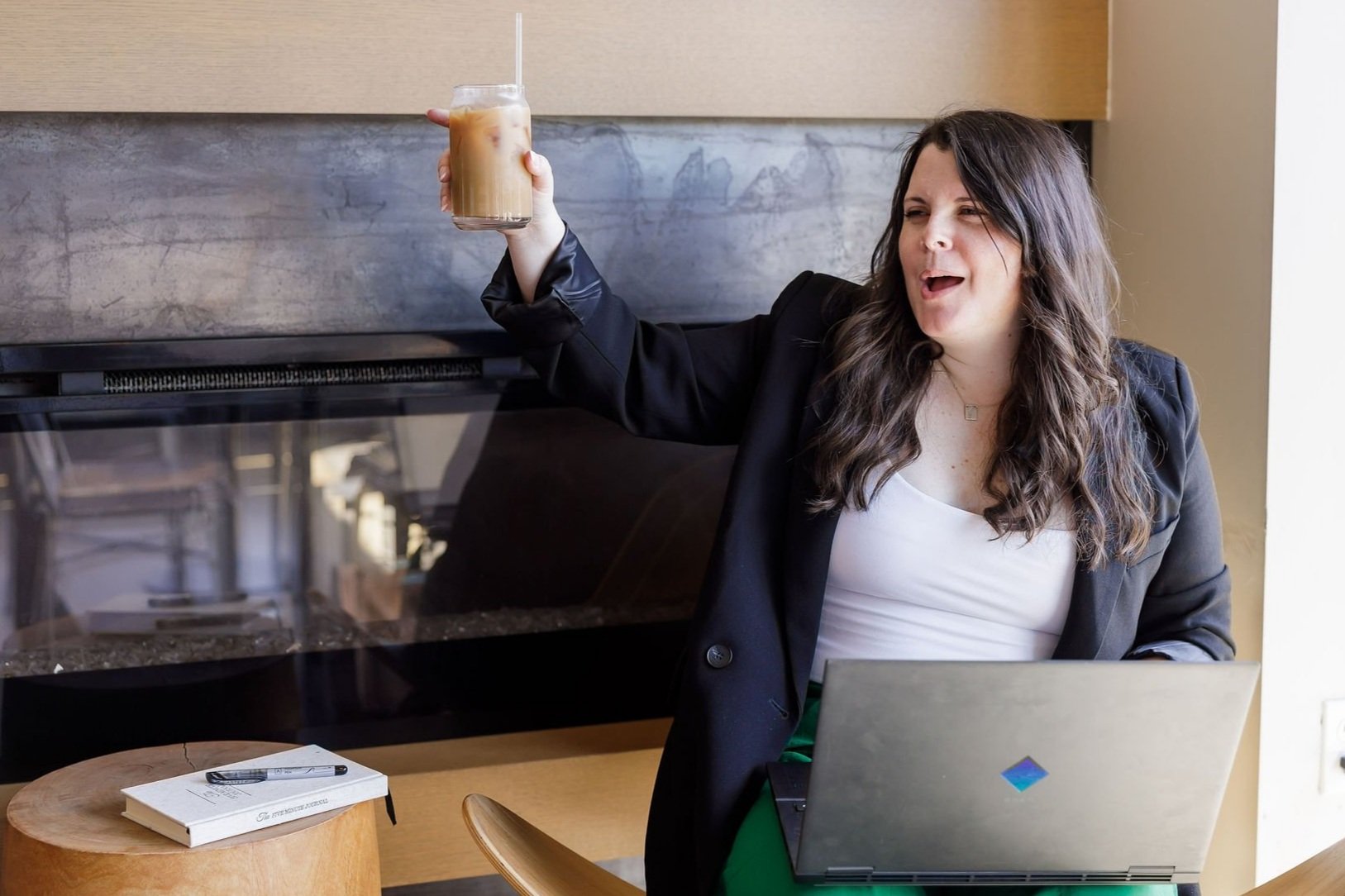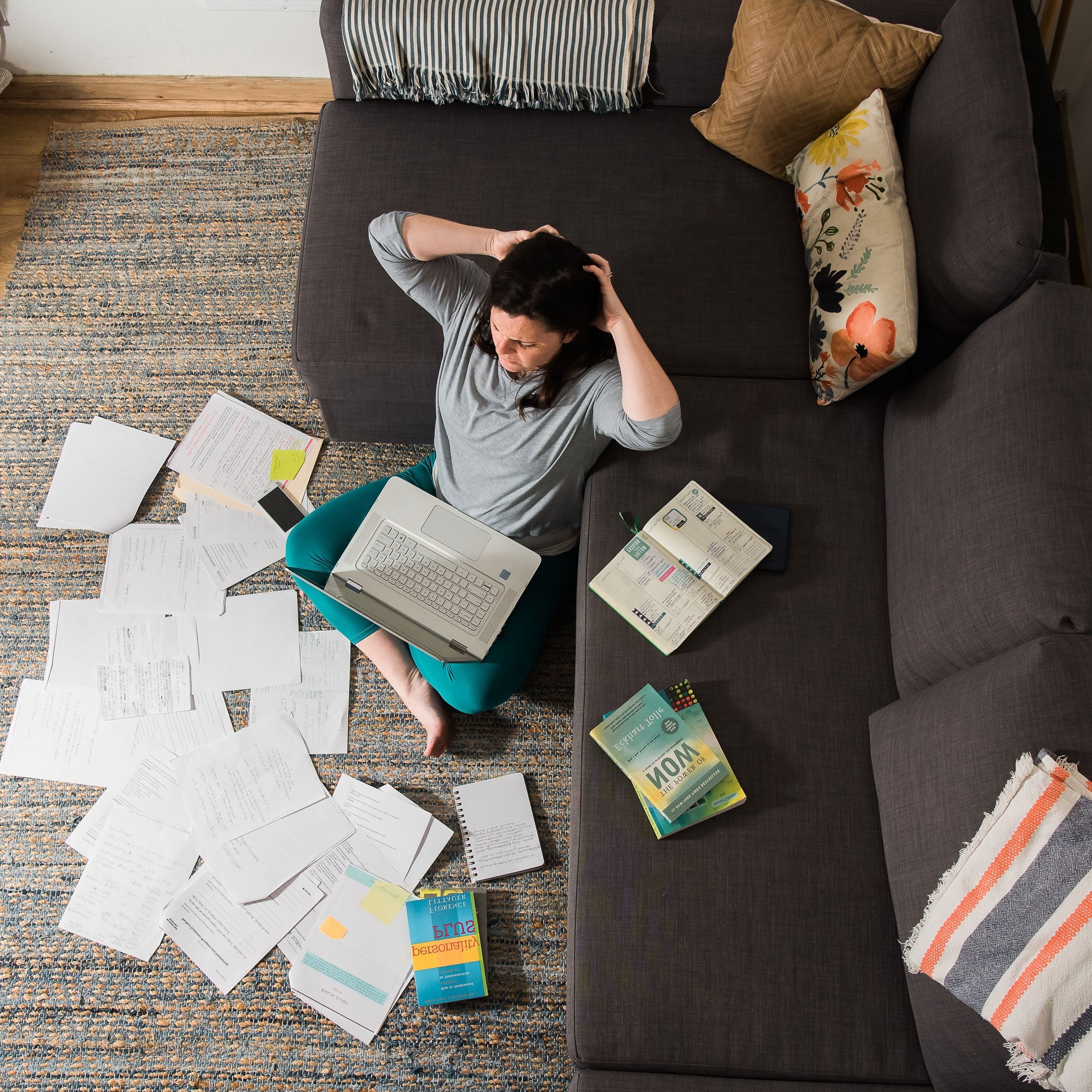4 Apps That Actually Reduce Stress (Not Add To It)
Let me guess: You've downloaded every wellness app under the sun, promised yourself you'd finally get your stress under control, and somehow ended up more stressed than when you started.
Yeah. Same.
Her'e’s The Problem with Wellness App Overload
Let's be real: the wellness app industry has convinced us that we need to track everything.
Your steps. Your sleep stages. Your heart rate variability. Your water intake. Your mood. Your meditation streak. Your breath work sessions.
And listen—I'm not anti-tracking. But when your "self-care" routine requires managing five apps, remembering to charge three devices, and feeling guilty every time you miss a notification? That's not wellness. That's just more work.
The truth? Most wellness apps are designed to keep you engaged, not to actually reduce your stress.
They gamify your health. They send you reminders. They make you feel like you're falling behind if you don't hit your streaks. And before you know it, you're more stressed about managing your stress than you were before you downloaded the app.
So I decided to try something different. Instead of adding more tools, I asked myself: What actually makes me feel calmer? What reduces decision fatigue instead of adding to it?
Here's what stuck.
Tool #1: YouTube (Free Nature Videos & Cycle-Synced Workouts)
I know what you're thinking: YouTube? Really?
But hear me out. YouTube has become my secret weapon for stress relief—and it's completely free.
Here's how I use it: nature videos and cycle-synced workouts.
When I'm feeling overwhelmed or my nervous system is in overdrive, I pull up a 10-minute nature video. Ocean waves. Forest sounds. Rain on leaves. There's actual science behind this—research shows that nature videos reduce stress just as effectively as being in nature itself. Natural soundscapes measurably lower cortisol and anxiety levels.
And here's the best part: I don't have to leave my desk. I don't have to plan a hike or drive to the beach. I just pull up YouTube, press play, and give my nervous system a five-minute reset.
The second way I use YouTube? Cycle-synced workouts.
If you're someone who menstruates, you know that your energy levels fluctuate throughout the month. Some days you're crushing high-intensity workouts. Other days, you need something gentler.
Instead of forcing myself into the same workout routine every day (and feeling like a failure when I can't keep up), I search for workouts that match where I am in my cycle. Follicular phase? High-energy HIIT. Luteal phase? Pilates or yoga.
This one shift has done wonders for my stress levels because I'm no longer fighting my body. I'm working with it.
Tool #2: Bevel (~$6/Month for a Simple Readiness Score)
A year ago, I was using three different tracking apps. One for sleep. One for HRV. One for activity. Each one had its own dashboard, its own insights, its own notifications.
It was exhausting.
So I cut it all down to one app: Bevel (or whatever similar readiness app works for you—Whoop and Oura have similar features).
Here's why it works: It gives me one simple score every morning. That's it.
My readiness score tells me if my body is ready to push hard today or if I need to take it easy. It factors in my sleep quality, heart rate variability, and recovery metrics—but I don't have to dig through five different dashboards to figure it out.
One number. One decision. Done.
This has been a game-changer for reducing decision fatigue. Instead of waking up and wondering, Should I work out today? Should I push through this task? Am I tired or just lazy?—I check my readiness score and trust it.
If it's high? I go hard. If it's low? I adjust my day accordingly. No guilt. No overthinking. Just data-informed decisions that help me stay consistent without burning out.
Tool #3: iPhone Focus Modes (Free Digital Boundaries)
This one's free, built into your iPhone, and might be the most powerful tool on this list.
Focus Modes let you create custom notification boundaries based on what you're doing.
Here's how I use them:
Work Focus: Only allows notifications from Slack, my calendar, and my partner. Everything else is silenced.
Personal Focus: Turns off all work apps. I only see texts from friends and family.
Sleep Focus: Silences everything except emergency contacts.
Before I started using Focus Modes, I was constantly reacting to notifications. A client email would pop up during dinner. An Instagram DM would interrupt my workout. A Slack message would wake me up at 11 p.m.
And every time, my stress spiked.
Focus Modes changed that. Now, my phone automatically adjusts to what I'm doing. I don't have to rely on willpower to ignore notifications. The boundaries are built in.
This one shift has cut my notification-related stress in half. And the best part? It's completely free.
Tool #4: Notion (Low-Cost System for Weekly Resets & Brain Dumps)
I know, I know—I talk about Notion all the time. But here's why it's on this list:
Notion is where I do my weekly reset and my brain dumps. And that is hands down the most effective stress-management practice I have.
Here's how it works:
Every Sunday, I sit down with my Notion dashboard. I look at the week ahead. I brain-dump everything swirling in my head—tasks, ideas, worries, random thoughts. I get it all out of my brain and into a system I trust.
Then I organize it. I prioritize. I delete what doesn't matter. I delegate what I can. And I walk into Monday with a clear, calm plan instead of a chaotic mental to-do list.
This one practice has done more for my stress levels than any meditation app ever did. Because here's the thing: I can't relax when my brain is trying to remember 47 things.
And yes, you could do this with pen and paper. You could use Google Docs. But I use Notion because it's connected to my whole system—my tasks, my calendar, my project trackers. Everything lives in one place, and that reduces the mental load significantly.
If you don't have a weekly reset practice, start there. It doesn't have to be in Notion. But it does have to happen.
The Big Lesson: Fewer Tools, More Intentionality
Here's what I learned after a year of experimenting:
You don't need five apps. You don't need to track every biometric. You need a system that reduces decision fatigue, not adds to it.
So if you're feeling overwhelmed by your wellness stack right now, I want you to ask yourself: Which of these tools actually makes me feel calmer? And which ones are just one more thing to manage?
Then cut the rest.
My four tools cost less than $7/month total. No overwhelm. No notification chaos. Just intentional choices that help me stay grounded.
YouTube: Free nature videos and cycle-synced workouts
Bevel: ~$6/month for a simple readiness score
iPhone Focus Modes: Free digital boundaries that actually stick
Notion: Low-cost system for weekly resets and brain dumps
If you're ready to build a burnout-proof system that actually works for your life—not just what worked for someone else—I've got something for you.
Take my free Burnout-Proof Quiz. It takes 2 minutes, and it'll show you exactly where to start based on where you are right now.
Because here's the truth: Success shouldn't require sacrificing your sanity. You can build a thriving business (or career, or life) without burning out in the process.
And if you want help creating the systems to make that happen? Check out Systems School or Burnout-Proof Business. Both are designed to help ambitious solopreneurs like you scale without the overwhelm.
Now go simplify your wellness stack. Your nervous system will thank you.





